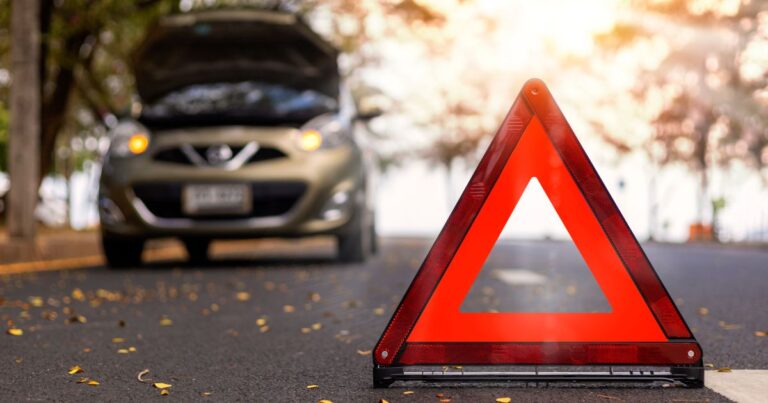Understanding Compensation Limits for Personal Injury in an Accident
When you’re pursuing a personal injury in a road accident claim, you’ll need to know how compensation is set and where to file. Unlike other claim types, personal injury claims don’t start with a specific money demand. Instead, medical experts and the court assess your full damages during legal proceedings. Your initial medical assessment isn’t the final say.
Choosing the Right Court for Your Claim
The court you choose to file your claim in is crucial, as each has jurisdictional limits on the compensation it can award:
- Small Claims Court can hear claims up to ₪38,900 (as of January 2023).
- Magistrate’s Court can handle claims up to ₪2.5 million.
- District Court has no monetary limit.
For a personal injury in a road accident, claimants usually first consult experts. These professionals estimate the bodily injury’s extent. This financial assessment helps the claimant choose where to file. For example, if damages are estimated at ₪20,000, Small Claims Court is often chosen. This route means lower costs like lawyer’s and court fees, plus a faster process. The ₪38,900 Small Claims Court limit likely won’t stop them. However, if damages hit ₪2 million, the claim will probably go to Magistrate’s Court.
Special Circumstances: Work-Related Accidents and Disability Claims
If your road accident occurred while you were on your way to or from work, or during work-related duties, your claim would likely be filed with the Labor Courts. Additionally, if you’re seeking a pension or a disability percentage due to your injuries, you’ll need to apply to the National Insurance Institute.
Understanding these different avenues and their respective limitations is key to effectively navigating your personal injury in a road accident claim.
Considerations for Filing a Personal Injury Claim in Small Claims Court
- The claimant estimates their damages will not exceed the Small Claims Court’s jurisdictional limit (₪38,900, as of January 2023);
- The claimant estimates their damages may exceed the above limit by a small margin, but prefers a quicker and less costly process;
- Inability/unwillingness to afford a lawyer and pay high fees and expenses;
- To benefit from the simpler procedures and evidence rules in Small Claims Court, which are more lenient towards errors.
Compensation for Personal Injuries When the At-Fault Driver Lacks Mandatory Insurance
A claim can be filed against the at-fault driver in court and/or an application made to “Karnit”. Karnit is a public corporation established under the Road Accident Victims Compensation Law, 1975. Part of the premium paid by all drivers for mandatory insurance is allocated to Karnit to provide compensation when recovery from the at-fault party is impossible. This includes:
- Hit-and-run accidents;
- When the at-fault vehicle lacks mandatory insurance;
- When the vehicle was driven by an unlicensed driver;
- When the insurance company of the at-fault vehicle is in liquidation;
- When the vehicle was used contrary to the policy terms (and therefore the insurance company does not provide coverage);
- When the at-fault vehicle was stolen.
If the at-fault driver’s details are known, both options can be pursued. That is, applying to Karnit for compensation, and if Karnit rejects the claim or provides insufficient compensation, subsequently suing the at-fault driver for personal injury damages.
Damages Claimable for Personal Injuries
Damages are divided into two main categories: special damages (from the date of the accident to the filing of the claim); and general damages (future damages, including pain and suffering).
The following are the main heads of damage that can be claimed:
- Loss of earnings;
- Reimbursement of medical expenses;
- Reimbursement of travel expenses;
- Reimbursement of expenses for assistance from a third party;
- Pain and suffering (to be assessed).
Determining Compensation for Personal Injury in a Road Accident
Here’s the revised text with shorter sentences for SEO, maintaining the keyword “personal injury in a road accident”:
If you have a personal injury, know how your compensation is figured. The amount isn’t set. It depends on several key factors the court will weigh.
How Your Compensation Is Determined
Three main factors influence your personal injury in a road accident compensation.
Injury Severity
More severe injuries mean more potential compensation. This includes physical pain and suffering. It covers psychological trauma and medical bills. Long-term life impact is also considered.
Resulting Disability
Temporary or permanent disability greatly impacts compensation. The court assesses how it affects your work. Daily tasks and quality of life are also judged. Lost wages and future earnings are factored in.
Court’s Jurisdictional Limit
Each court has a maximum award limit. Small Claims Court has a lower limit. Magistrate’s or District Courts have higher limits. Your legal team picks the right court. They base it on your claim’s estimated value.
Important Note on National Insurance Institute Benefits
It’s vital to remember that any compensation you are awarded by the court for your personal injury in a road accident will be reduced by any payments already received or slated to be received from the National Insurance Institute (NII) for the same injury. This is to prevent double compensation for the same loss.
Navigating the complexities of personal injury claims requires expert guidance. Understanding these factors can help you set realistic expectations for your case.
Dual Avenues for Compensation: Personal Injury in a Road Accident as a Work Accident
Understanding your rights after a personal injury in a road accident becomes even more crucial if the incident occurred during your work-related activities. In Israel, according to Section 80 of the National Insurance Law (Consolidated Version), 1995, a road accident that happens on your way to or from work, or during work, is often classified as a work accident.
This classification opens up important avenues for compensation. If your personal injury in a road accident is deemed a work accident, you have the option to file a claim directly with the National Insurance Institute (NII). The NII provides benefits and compensation specifically for work-related injuries. It is advisable to file this claim within one year of the accident.
Crucially, this does not preclude you from also pursuing a claim through the courts. The Regional Labor Court is the competent body to hear claims related to work accidents. Therefore, you can concurrently file a claim against the National Insurance Institute and, where applicable, against the at-fault driver’s insurance company or the at-fault driver directly. This dual approach can help ensure you explore all potential sources of compensation for your injuries and losses.
Statute of Limitations for Personal Injury in a Road Accident Claims
Understanding the statute of limitations is critical when pursuing compensation for personal injury in a road accident. This legal deadline dictates how long you have to file a lawsuit after an incident. Missing this window can mean forfeiting your right to seek damages.
Suing Only the Insurance Company
For personal injury in a road accident, if you only sue the insurer, you get three years to file. This period begins on the injury date. Section 31 of the Insurance Contracts Law, 1981, sets this shorter limit. It overrides the longer general limitation law. However, some policies might start this three-year period from a disability assessment. Always review your policy carefully. Or, ask a legal professional to confirm your claim’s exact start.
Suing Both the At-Fault Party and the Insurance Company
When you sue both the at-fault party and their insurance company for a personal injury in a road accident, the general Law of Limitation applies. This usually gives you seven years from the event date to file your lawsuit. This longer period helps account for the added complexities of claims against multiple parties.
Navigating these different limitation periods can be complex. To ensure you don’t miss crucial deadlines and to understand the specific timeline applicable to your personal injury in a road accident case, it’s always advisable to seek legal counsel promptly.





